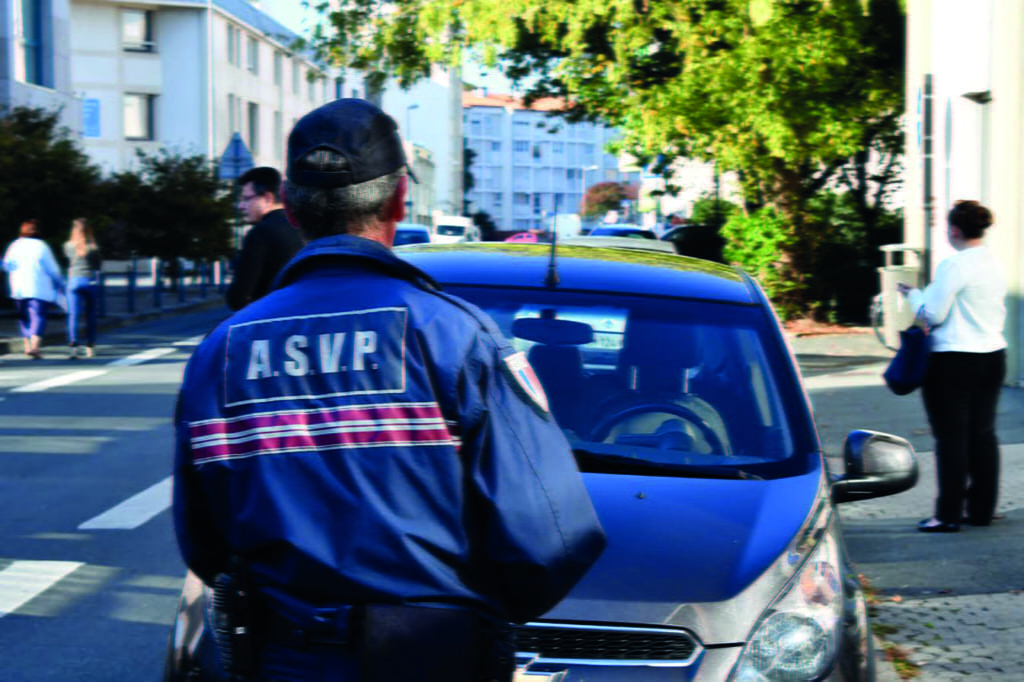Creating the change
The new French parking law is celebrating its first anniversary. Ivo Cré asks Lille Metropole’s Olivier Asselin to reflect
On 1 January 2018, France chose a drastic alternative way for managing parking. Olivier Asselin, coordinator for parking policy at Lille Metropole and the chair of the Polis parking working group, is well placed to explain the impact of this process.
Ivo Cré: Why was this change needed? Olivier Asselin: The local authorities in France did not have the tools to implement effective parking policies: we could fine only up to €17 per day. Our neighbouring countries can go up to €40 (Belgium) or even €90 (Spain). In cities with higher parking prices, it is cheaper to pay the fine than to pay the fee. Another problem was that the French state was collecting the fines, and then redistributing this revenue to the local level without direct profit-sharing to the authority in charge of control. There were no clear statistics about local parking infringements and the whole situation was not very transparent. It was estimated that in France only two out of every five drivers paid. Most onstreet parking spaces only received payment for two hours per day!
IC: So, what was changed?
OA: Parking is brought under administrative law. The infringements on parking are no longer criminal offences. On-street paid parking is a simple public domain occupation. If you don’t pay for parking, you are asked to pay afterwards for the services rendered. It is now possible to adapt the fine to local context and to involve the private sector in the control activities. The law also encouraged the use of new technologies to enforce and manage on-street parking. The price structure can be locally defined, to match local problems and can be linked to local policies. Just as importantly, locally obtained revenues and fines can be used locally.
IC: How are cities working with the opportunities the legal change has offered?
OA: Some cities (around 10 per cent) stopped managing on-street paid parking, using the “European parking disc” system, but a large majority (500-600) kept it and implemented the reform. Cities have invested in better technology: pay machines, license plate registration, phone apps and so on. The law has offered a great opportunity to implement digital enforcement. Most authorities manage parking themselves. Only 15 per cent of cities delegated control to private companies. The overall management of street space has improved. Even though there were some technical difficulties in the first months, the new system globally works and the reform fulfilled its objectives: local politicians can have local impacts and it is possible to see efficiency improvement through the increase of parking income, and through the better availability of on-street parking places. Moreover, beyond the aims of the reform, parking has become a major topic in discussions on urban mobility.
IC: What has changes in Lille thanks to the new legislation?
OA: In Lille Metropole there were four cities with on-street paid parking before the reform. Three of them entered the new system (Lille, Roubaix, Armentières), while one of them (Tourcoing) decided to use the “European parking disc”. Lille Metropole was associated in the preparation of the evolution of the city policies, with juridical and formation support to explain the reform and also by negotiating financial conventions with the three concerned cities. The new legislation needed an adaptation of the parking rules in all four cities. In Lille and Armentières, the fee was kept to €17 with grids adaptations, while extended regulated areas are being prepared. In Tourcoing, the blue zone was extended around the train station, while the penalty fee was raised to €35. In Roubaix, the control was assigned to a private-public company, with a €25 fee, a modernisation of the pay machines and an objective of increased control intensity. Lille is conducting on-street enquiries to evaluate the efficiency of those changes.
Local opportunities for digital parking – a Polis Policy Paper
Smart parking management system is essential for a sustainable urban mobility system, which should manage supply and demand without detrimental effects, supporting air quality improvements and reducing carbon emissions whilst still providing access to the city and all its functions.
Polis members are gradually digitising their parking processes. But the digitalisation of parking develops rapidly. New apps, sensors and algorithms enable more precise assessment of occupancy, improved routing to empty parking spaces and payment. The rapid development brings risks: how long will applications survive, where to invest? The market which is undeniably growing, cannot be considered mature.
Polis members, local governments managing parking, see this digitalisation of parking in a wider context. For them, it is about reaching wider mobility and transport policy goals – embedded in a global spatial, economic and social vision for the city. They understand parking is an emotional and sensitive topic for citizens and economic stakeholders.
In the recently published policy paper Local Opportunities for Digital Parking, current and upcoming use cases for digital parking are presented, together with recommendations on how to deal locally with digital parking.
Cities are invited to plan strategically, create an integrated digital parking ecosystem, and to develop tools that not only make parking management more efficient, but also can inform urban mobility and development policy.
• Find out more at www.polisnetwork.eu/parkingpaper
FYI
